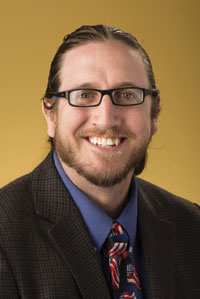By Wim Laven
“May he attain nirvana.”
Sri Lankabhimanya Ahangamage Tudor Ariyaratne passed away on April 16, at the age of 92. If there was anyone worthy of liberation from this world of suffering, Ari’s (as he is affectionately known) life of service had earned him such a blessing.
My feelings were as an American who found himself in service to Ariyaratne’s organization, itself in service to humankind.
I reached the beautiful island of Sri Lanka in 2005 during complex humanitarian disaster following decades of brutal civil war and the catastrophic 2004 Indian Ocean tsunami. I discovered meaning in my life through service to others, and practiced the Christianity my parents raised me with, helping those in greatest need.
Ariyaratne founded Sarvodaya–Sri Lanka’s largest nongovernmental organization (NGO). Sarvodaya, which roughly translates to the uplift of all, has the noble vision of “building a just, sustainable, compassionate social order that fulfills the basic human needs of the community through individual and collective awakening.” It’s a vision combining Buddhist and Gandhian principles Truth (satya), Nonviolence (ahimsa) and Selflessness (pararthkami).
The world needs to know about, celebrate, and emulate such compassionate and loving leadership. I am not the greatest expert, but I can provide my own personal testimony to the need and benefit of such noble work, and with the blessing of the Ariyaratne family share love of the Sarvodaya Shramadana (“Sharing of one’s Time, Thoughts, Labor and Energy”).
It is easy speak of the breadth of Ari’s vision in numbers. Since 1958 Sarvodaya has grown operations to provide aid in more than 15,000 villages and for the betterment of hundreds of thousands of families. But the reality is harder to put into words. Sarvodaya let the poorest create the programs.
The world’s impoverished are increasingly ignored. Aid organizations frequently shy away from those in greatest need. Donors want to see results, and the obstacles can be mountainous. But this is where I saw Sarvodaya at its best. Landmines and disease were challenges, but not deterrents. I observed leadership that never made excuses nor gave up.
In 1958 Ari brought students to a “low caste” impoverished village, not with ideas of what they would do but with the question, “what can we do for you and with you?” followed by sincere and effective efforts to achieve what villagers said they needed.
Ari knew he was a political force, and there were many people that were disappointed that he did not get more involved in politics, but he did not want to challenge the government, he wanted to challenge humankind itself.
Everywhere you look you will find pain and suffering. Genocide, starvation, bombs, lack of healthcare, substance abuse epidemics, etc. There are problems everywhere, and every time we find someone (or a village) in need we can ask, “what can I do for you?” We can always be of service, we can always be of help, and we have great examples to remind us that even when the machines of war are hard at work we can stay committed to nonviolence, compassion, and love.
I am grateful to have been a direct beneficiary of Ari’s vision for the world. By going to help people I discovered I was helping myself. It is called the uplift of all for a reason, and it works; I have watched it and experienced it. We benefit from these global lessons on poverty and violence if only we can more ways to serve our communities—all of them.
There is no better time than now. There are no better people than each and all of us. The world has lost a Great Soul. May his life inspire many more to do all we can.
Wim Laven, Ph.D., syndicated by PeaceVoice, teaches courses in political science and conflict resolution.

